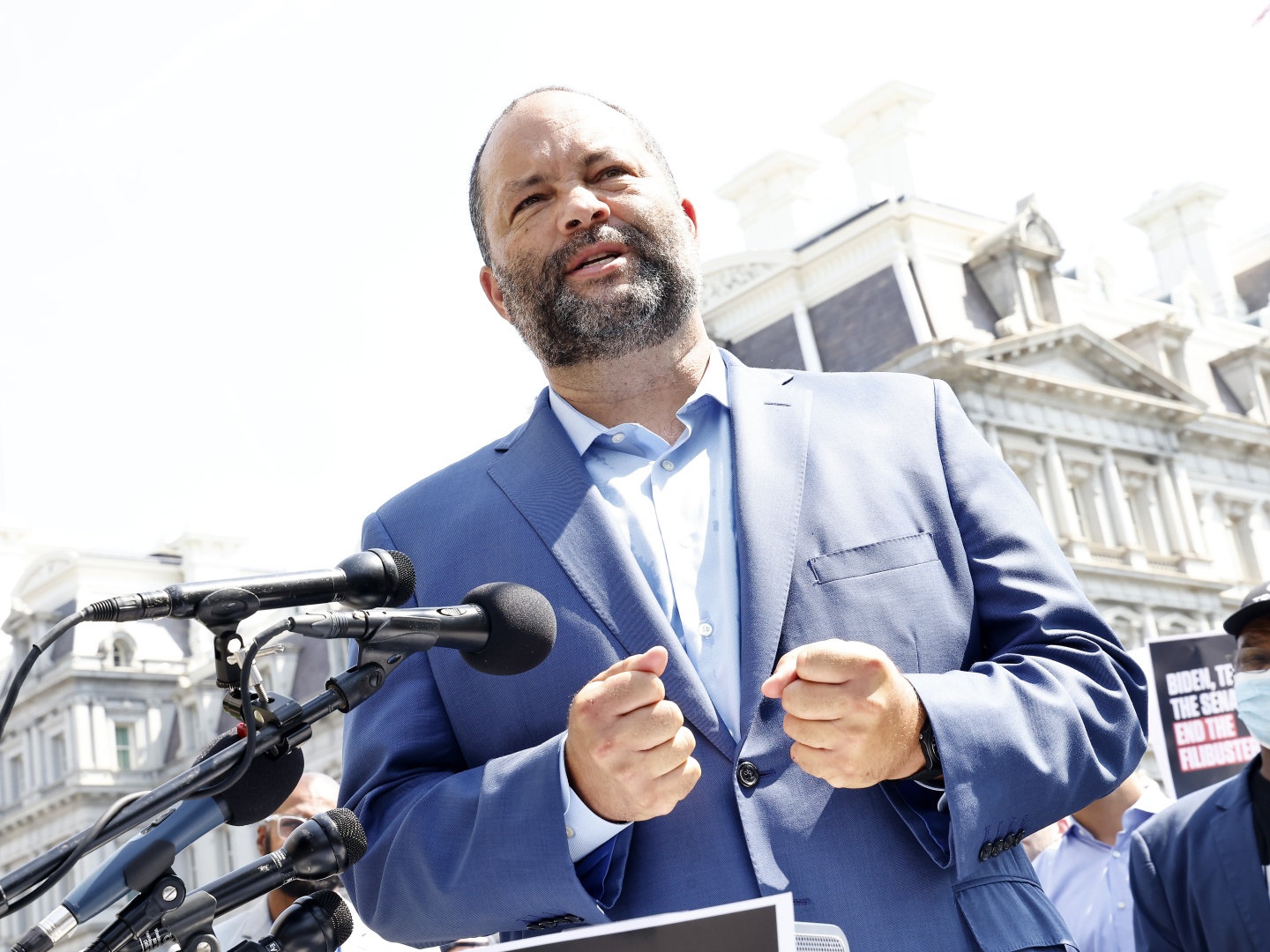Welcome to a new NPR series where we spotlight the people and things making headlines — and the stories behind them.
For many American environmental advocates, acknowledging the exclusionary past of the movement is key to making progress now. One man knows this intimately.
Who is he? Ben Jealous is the new executive director of the Sierra Club, an environmental organization that "fights for environmental and social justice." But he's no stranger to the world of civil rights and social advocacy.
- Jealous served as the CEO and president of the NAACP, the youngest person to ever hold both positions.
- He was also president of People For the American Way, an advocacy organization dealing with civil liberties, advocacy, and social justice to combat far-right movements.
- And he was the Democratic nominee for governor of Maryland in 2018, which was ultimately won by then incumbent Larry Hogan.
- As the new executive director of the Sierra Club, he will be the first person of color to ever hold the role.
Listen to NPR's interview with Ben Jealous by tapping the play button above
What's the big deal? Though the Sierra Club is known for leading the way in environmental advocacy and protection in the United States, it has also received heavy criticism for a history built upon ideas of white supremacy and racism.
- In 1998 and again in 2004, anti-immigrant factions tried and failed to stage a hostile takeover of the national board of the Sierra Club.
- In 2020, then executive director Michael Brune wrote a public post saying the Sierra Club had to "reexamine our past and our substantial role in perpetuating white supremacy," and that the club's founder, John Muir, had "made derogatory comments about Black people and Indigenous peoples that drew on deeply harmful racist stereotypes."
- The reckoning at the Sierra Club is part of a growing recognition that the American environmental movement was, in many ways, founded on exclusionary and racist ideas.
What's he saying?
In an interview with NPR, Jealous outlined how things have changed:
[When discussing historical movements] like the women's rights movement, and the gay rights movement, all of them have histories of being racially exclusionary. For the Sierra Club right now, the reality is that the urgency of the work on the ground has required people to really shift, I'd say, in many ways, from Hurricane Katrina forward. I think that's probably a pretty good line for the movement to try to figure out how to work across all lines of division.
And he outlined how the Sierra Club can move beyond its complicated past:
The priority is to move forward. I come into this role as a Black guy who started a major environmentalist group when I was 21 years old. There was one Black executive at the time. And then on my first day, they felt obligated to put me in their office and say, "How does it feel to work for a white organization, and know that's not going to change soon?"
I've served on the board of multiple environmentalist groups. There's none more diverse, more inclusive, than the Sierra Club. Our reckoning that happened, the debate that happened is, frankly, evidence of a very healthy, dynamic group that is doing the real work of becoming ever more inclusive.
So, what now?
- Jealous says there is a "very urgent" need for more environmental victories.
- He cites the Sierra Club's role in shutting down coal-fired power stations, and says the course of action is to stay focused on their climate goals that are connected to racial equity, like shutting down the plants to alleviate asthma in the Black community.
Learn more
- Check out this investigative report on how climate change in coastal Senegal is fueling the rise of the far-right in Europe
- Read about why the EPA puts a higher value on rich lives lost to climate change
- Read about how despite spending billions to get off coal, Indonesia is still building new coal plants
9(MDAxODcyMTgzMDEyMTgxMTY5NjYxN2I4OQ004))
300x250 Ad
300x250 Ad
